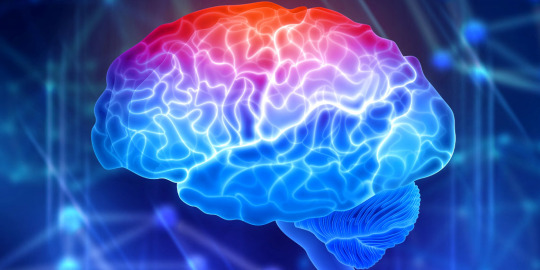#and a common side effect IS constipation
Text
my mom bought a pillow for my infant's bassinet and then got upset when I told her absolutely not. and then didn't believe me when I told her about safe sleeping and that he's my kid anyway, so I'm deciding what's worth the risk and what isn't. she sends me a post like "look at how good the pillow is" and it's just. the ad for the fucking pillow. her source is the ad.
she did this again about gripe water. I tell her it works and that it's relatively safe but considering how worried the hospital was about his kidneys and thst we haven't had results yet for his ultrasound so i'd rather not risk his kidneys by giving him anything not milk unless he truly needed the stupid gripe water. and then she sends me a "source" about how it does no damage at all and it's from. the company she was recommending. like dude. and every pediatrics/hospital based site clearly talks about how those drops should be a last resort. bc for the reasons I said. a baby this small can only handle milk
#and then she wanted to use these simethicone drops right#and im like well he hasnt pooped in 2 days so i want to make sure hes not constipated first because simethicone doesnt do anything for it#and a common side effect IS constipation#and she responds about how out of ALL the reviews she read only one mom talked about constipation#and how babies NEVER get constipated from it#and im like wow what a great source#the thing is my baby has been okay so far just normal infsnt troubles and so far he calms down easily#if he was actually cryng hours at a time and not able to sleep well then this would be a different story#i just hate the parental 'oh no! lets skip to the most intense option!' ppl do#and also she doesnt consider him a person she only exclusively talks to him like hes a fucking dog#and underestimates his infant ability to eat and root and cry#like shell insist hes in pain when hes not even crying or anything#idk how she raised 3 kids#also shes scared of tummy time and didnt want me to do it?
0 notes
Text
trying to brainstorm names and gilgamesh goes “what about Adam?” And I was like waow… irl oc real?
#stereotypically millenial in tht I do like boring classical names#and I’ve always had plain naming conventions in general#funny enough though the name we both like IS a character name I’ve written before 🥴#not purposefully obviously. but. there’s only so many good anglicized Irish boy names#the bean#<- general preggo + baby tag if you’d like to block btw#i completely understand. I still find other people talking about their kids boring as shit#not like I’m gonna turn exploitive influencer about it#(I barely talk about gilgamesh for a reason. the internet is insane)#but it’s hard not to kvetch a little about this stuff#did you guys know constipation is a common pregnancy side effect#every time I take a shit I do a hail mary if it gets any worse I’m converting away from atheism out of desperation
4 notes
·
View notes
Note
maam you have to tell us what antidepressants are making your tits bigger PLEASE
nortriptyline. Its a tricyclic antidepressant I'm trying since none of the other classes like SSRIs have been working. These days they typically wait until youve tried other medications before prescribing these old ones since they effect way more inhibitors in your body than just the ones in your brain, like they aren't selective. so you have a much higher chance of feeling a lot of the side effects which tend to focus on other parts of the body. for this med, breast swelling is kinda common along with dizziness, fatigue, strange mouth taste, constipation, etc
Theres no "guarantee" it'll make your breasts grow, its a side effect like the others, it may or may not happen but its something to keep in mind especially if your a guy or masc, since that type of breast tissue doesn't go away
#ask and mew shall receive#They're swollen but its not like anime girl proportions or anything#Its just one of those things I never thought I'd have to tell the psychiatrist#I'll probably have to get a bloodtest done
62 notes
·
View notes
Text
Deconstructing Dieter Bravo: Part 2

If you haven't read chapter 25 of Destiny & Deliverance, do so before continuing with this post to avoid spoilers. 😉

Now that the story is starting to dive into what is going on with our dear Dieter, I felt it was time for Part 2 of the Deconstructing Dieter Bravo series to discuss the topic of psychiatric medication.
Just to be clear, this is not a post for or against the use of such medications. I want to put that out there before we get started. It is also a very high-level overview.
Most individuals that do not have experience with mental health struggles (weather that be personally or via someone close to them) do not realize the affects that psychiatric medications can have on the patient and further complications that they can cause during treatment, which is why I feel it is important to share some of this information.
While psychiatric medications are meant to help manage symptoms, they can also make things a hell of a lot worse. In many cases, the first medication isn't the correct medication or the correct dosage. There is a lot of trial and error involved in the process because everyone's body chemistry is different. Which means the patient is often left dealing with side effects that can range from minor to severe. Figuring out the correct medication and dosage for an individual can be a long and unpleasant process, which is why many give up on the use of medication all together.
There are six main categories of mental health medication: antidepressants, antipsychotics, mood stabilizers, depressants, anxiolytics, and stimulants. Each category is used to treat different types of disorders. Each come with their own set of side effects, but the most common are headaches, weight gain, dizziness, dry mouth, muscle spasms and cramps, nausea, loss of sex drive, constipation, sleepiness or problems with sleep, loss of appetite, and fast heart rate.
More serious and less common side effects are always a possibility too. Especially if patients are taking certain medications after being misdiagnosed (more about that in a later post). More serious side effects include nightmares, blurred vision, depression and/or paranoia, aggressive behavior, agitation, anxiety, personality changes, concentration problems, mania, suicidal ideation, and memory damage.
To complicate things further, psychiatric medications easily interact with other substances such as headache mediations, vitamins, and herbal supplements. It is important that the patient is aware of that possibility and ensures that their doctor is aware of all consumption habits. This includes ingredients in meals and drinks. It is also highly recommended not to mix alcohol with the majority of psychiatric medications.
Given all the possible side effects it is important that patients and their families/caregivers communicate to their doctor any changes they are experiencing with their bodies, feelings, and thoughts no matter how minor to avoid any further complications that could eventually result from continued medication use. Some medications take effect immediately while others can take up to two weeks or longer. Antipsychotics can take between six weeks to three months to get into your system and become effective. Therefore, obvious side effects could be delayed which is why it is important to continue to make note of any changes.
There are many long-term effects of using these types of medications such as organ damage and disorders like tardive dyskinesia (involuntary movements of various body parts). Therefore, it is very important that the patient regularly check in with their doctor and have regular blood work done to check on things.
It's important that patients find a doctor that they trust and that truly listens to their concerns so that no minor detail is overlooked. It is also important that patients and their family/caregivers are proactive in their own care, ensuring proper follow-up and tests are performed. Otherwise, important factors could be overlooked and lead to complications down the road.
Given this brief overview of information, it is safe to say that Dieter is experiencing both the common and more severe side effects from the medication he has been taking. There have been hints throughout the entire fic that his meltdown was slowly building, though it wasn't completely obvious. Which is the hard part about these types of things. It's often not an issue until it's bad.
There are some behaviors that could be a direct result of Dieter's diagnosis, while other behaviors could have been and were most likely exacerbated by incorrect medicating. That is just something to keep in mind as we work our way through the story.
In Chapter 27 we will get a formal diagnosis for Dieter and take a deeper dive into his disorder as well as how the medication he is on has created a perfect storm.
🌛Mysterious-Moonstruck-Musings

Tag List: @rhoorl @bitchwitch1981 @readingiskeepingmegoing @runningmom94 @for-a-longlongtime @hisandsnakes @chaoticfestninja @survivingandenduring @partyofone3413 @wannab-urs @cakipy-blog @titlee78 @poodlebae @guelyury @missladym1981 @maried01 @alokaerza @samiamproductions @misstokyo7love @themonadiaries-blog @madnessofadaydreamer @darkheartgatita @avastrasposts @weho2kcmo @harriedandharassed @tkchaos @girlofchaos @yghuibt
Let me know in the comments below if you would like to be added to the tag list.
#dieter bravo#pedro pascal characters#destiny & deliverance series#deconstructing dieter bravo series#pedro pascal#dieter bravo fic#dieter bravo x oc#dieter bravo fanfiction#pedro pascal character fanfic#pedro pascal fanfiction#pedro pascal fanfic#dieter bravo x ofc#the bubble#mental health awareness#mental health
40 notes
·
View notes
Text
Had to force feed Maya again and just wanted to show how I do it (she's fine now).
what happened?
I noticed the last time she ate was in the morning, she's just laying or sitting around and she refused treats -> my test to see if something is wrong, since they always take treats even if they are lazy
her body felt a bit shaky
she held her head up as if she was focusing on something. For better / controlled breathing? to act as if she's fine? (buns hide illnesses) she behaved unusual
feeling her belly it was soft, no cramping but her stomach felt empty
(hard belly and cramping are signs of constipation somewhere in their digestive system -> don't force feed !!!)
why is not eating bad for buns?
their digestive system stops moving if they stop eating for too long
the stuff in their stomach starts building gases which makes them bloating up (rabbits can't fart or burp so that's gonna be painful at minimum or turn critical)
they start feeling sick (which makes them even less motivated to eat), their body temperature goes lower, their immune system shuts down at some point
they die from it if it's not getting fixed (don't know why nature invented such a dumb system)
common causes I had with all my buns over the years
too much fur ingested due to fur changing season (clogged system -> don't force feed!!!)
did eat too much too fast (clogged system -> don't force feed!!!)
didn't eat enough (stomach starts bloating, bun feels sick and too uncomfy to eat)
tooth spikes when their teeth grow (as they constantly do) in wrong directions (force feeding is good here but teeth have to get fixed by a vet)
didn't drink enough on a hot day -> dehydration (bun feels sick and too uncomfy to eat, stomach starts bloating)
some illness or meds side effect that causes dizziness or nausea (bun feels sick and too uncomfy to eat, stomach starts bloating)
-> but I think Maya was dehydrated cause today was very hot and she's currently taking heart meds that can cause nausea and loss of appetite.
Tho she was obviously hungry / thirsty as you can see in the video. She's more or less taking the food willingly. If she hates it (like meds...) she fights back more and takes forever to swallow too. Sometimes she or Caramel lets it drip out of their mouth. But she still refused to eat the mash on her own. It's special hay & herbs powder mix + water for force feeding sick animals (sometimes I mix it with lukewarm herbal tea). The stuff in the syringe is the same just with more water to get it in.
+ I gave her some meds that eliminates the bloating and bubbling in the stomach. I had some from the vet still. But there are meds for human babies that I get usually: Sab Simplex. It works the same and you can't overdose that one. It will not cause any side effects and just leaves the body on the natural way if it's too much (tho 1ml per 1kg bun is enough).
Usually the whole treatment has to be repeated every 2h till the bun is fine again.
The way I am holding her:
it's working damn good with all my buns. I found that technique in a yt video years ago. Basically holding the upper body up, shielding their bum with your elbow and body so they can't escape backwards. And if the bun turns their head away you can stop them with your shoulder or the fingers of the holding hand. The syringe / whatever feeding tool you have needs to go inside their mouth behind their front teeth if they are unwilling to take it. If they are willing they might drink it normally from the front. You gotta give them small doses with breaks, time to swallow and to calm down too.
Oh and it's very helpful to put them on places (table, chair) that is unfamiliar to them, so they are more cautious to move fast. And they need something under their feet that makes them not slip away.
At the end I was checking her belly again to make sure it's still soft and not hard. Soft is good~ And massaging their belly helps with restarting the movement in there.
-----------------
In this case today she basically just needed a jump start to eat & drink again. I gave her like 3 syringes full till she voiced discomfort (chattering of teeth). Right after the treatment she started eating on her own. She's fine now, is more agile again and even takes treats again.
[This is all based on my own experiences and what I learned from vets over the years. Don't do any of this if you are not sure and are inexperienced -> go to a vet then]

#accidentally wrote a whole essay but didn't want to leave questions open#my bunnies#bunnies#rabbits#sick pet
11 notes
·
View notes
Text
I am once again experiencing the Horrors™️, so you know what that means! ME/CFS information time!
Though often associated with fatigue and neuro-immune dysfunction, ME is actually quite prevalent in the gut as well. Intestinal and stomach issues are not uncommon, so here are a few to mention (these are not an exhaustive list, please add if you experience others!)
IBS: possibly the most common diagnosis, IBS can cause a whole host of lower GI dysfunction, including indigestion, constipation, diarrhea, and cramping. It can range in severity and form between individuals.
Gastroparesis: a paralysis of the stomach muscles that causes delayed and sudden stomach emptying. Symptoms include bloating, fullness, pain, nausea, and in cases vomiting. Let me tell you, this one’s a doozy.
Bacterial overgrowth: Unfortunately being chronically ill has consequences on the gut microbiome too, and some studies have shown evidence that individuals with ME/CFS (and its comorbidities like fibromyalgia and IBS) have an overgrowth in the small intestine, which causes side effects similar to those mentioned above.
ME/CFS really is a systemic illness, and if you are experiencing gastrointestinal symptoms, please seek the help of a trusted physician. If there is no one you feel comfortable speaking with, there are a few things I find help me.
Stay upright, slightly reclined if possible. Being completely flat makes me more nauseous and painful.
Small meals. Big meals only serve to instigate the nausea and cramping.
Avoid heat unless your guts are cramping, for example with constipation. Otherwise I find heat makes my nausea worse.
Try liquid replacements. I’m currently trying Boost, and have experienced good things with it.
This one’s the toughest, but avoid stressors. I have GAD so I never like hearing this but unfortunately anxiety and the gut go hand in hand. If you can try to distract yourself, it may ease the symptoms a little.
GINGER GRAVOL! If all else fails, these supplements work wonders for my stomach, and start taking effect in around 30 min. They’re last on the list because they can run a little expensive, but if you need relief fast, these are a life saver in my experience.
Stay safe out there, everyone, and feel free to add to this! These are just my sleepy, nauseous ramblings, and ME/CFS is not a monolith. I’d be happy to hear your thoughts and experiences
#shoutout to my cat who is keeping me company this morning#he’s just as confused as I am i should not be awake this early#me/cfs#myalgic encephalomyelitis#chronic fatigue syndrome#fibromyalgia#disability#chronic illness#ibs#gastroparesis#sibo
3 notes
·
View notes
Text







How Ozempic, other weight-loss drugs are "changing medicine"
Ozempic and other GLP-1 class medications are being proven beneficial for reducing cardiovascular risk and treating diabetes. But they also signal fullness to the brain and regulate blood sugar, allowing people to lose on average 10 to 20 percent of their body weight in the first year. For many of the roughly 74 percent of Americans who are overweight or obese, that's almost unimaginable. Correspondent Susan Spencer talks with doctors and patients about how these drugs work, and why they are considered life-changing (and even, for Wall Street analysts, a miracle).
youtube
Latest Ozempic Side Effects Information
As of April 2024, gastrointestinal disorders were the most common Ozempic side effects reported to the FDA. Nausea was the most common side effect reported, followed by constipation second and diarrhea third.
Severe side effects of Ozempic include allergic reactions, changes in vision and pancreatitis. Ozempic carries an FDA boxed warning for the risk of thyroid C-cell tumors.
FDA Adverse Events Reporting System (FAERS) Data for Ozempic Side Effects
Total cases reported 17,681
Serious cases (including deaths) 7,851
Deaths 222
Written By Michelle Llamas, BCPA Board Certified Patient Advocate
2 notes
·
View notes
Text
Fluoxetine (Prozac)
I've been on Fluoxetine for a few years now and have recently had my dosage doubled so here's an info post. The words highlighted in green are what personally effects me.
Some eating disorders and mood disorders may be treated with fluoxetine. Insomnia is more likely to occur than drowsiness. The serotonin syndrome may occur if you take fluoxetine with other medications that also release serotonin, such as tramadol, or if you overdose on fluoxetine.
Anxiety and Stress, Major Depressive Disorder, Bulimia, Depression, Premenstrual Dysphoric Disorder, Obsessive Compulsive Disorder, Panic Disorder, Postpartum Depression, Schizoaffective Disorder, Binge Eating Disorder, Agoraphobia, Body Dysmorphic Disorder, Borderline Personality Disorder, Dissociative Identity Disorder, Dysautonomia, Excoriation Disorder, Fibromyalgia, Hot Flashes, Intermittent Explosive Disorder, PANDAS Syndrome, Persistent Depressive Disorder, Premature Ejaculation, Somatoform Pain Disorder, Trichotillomania, Vulvodynia are some of the conditions this medication is used to treat.
Fluoxetine is an SSRI.
Side Effects
The most common side effects reported are; insomnia, asthenia (fatigue), and headaches.
Very Common
Headache
Somnolence (drowsiness, or the desire to sleep)
Tremor
Dizziness
Insomnia
Anxiety
Nervousness
Nausea
Diarrhea
Dry Mouth
Rhinitis (runny or itchy nose, sneezing)
Pharyngitis (sore throat)
Yawning
Asthenia (fatigue)
Anorexia
Decreased Sex Drive
Flu Syndrome
Common
Amnesia
Hyperkinesia (restlessness)
Paresthesia (a burning/prickling/numb/tingling/itching sensation that occurs on the hands, arms, legs, or feet, ect.)
Change of Taste
Abnormal Dreams
Agitation
Difficulty Paying Attention
Unstable Emotions
Hostility
Hypermania
Mania
Abnormal Thinking
Abdominal Pain
Constipation
Indigestion
Gassy-ness
Vomiting
Nosebleeds
Ear Pain
Fever
Thirst
Tinnitus
Decreased or Increased Appetite
Weight Loss
Painful Period Cramps
Erectile Dysfunction
Trouble cumming
Increased Need to Urinate
Hypertension
Abnormal Heartbeat
Rash
Sweating
Itchy Skin
Abnormal or Blurred Vision
Muscle Twitching
9 notes
·
View notes
Text
Toxicity Risks of Common Supplements: Exploring the Dark Side of Overdosing

Supplements can be a great way to boost your health and well-being, but it's important to take them safely and responsibly. Too much of a good thing can be harmful, and certain supplements can be toxic if taken in excess.
Vitamin A
Vitamin A is an essential nutrient that plays a role in vision, immune function, and cell growth and development. However, excessive intake of vitamin A supplements can be toxic. Symptoms of vitamin A toxicity can include nausea, vomiting, dizziness, headache, and blurred vision. In severe cases, vitamin A toxicity can damage the liver and other organs.

Iron
Iron is an essential mineral that is necessary for the production of hemoglobin, which carries oxygen in the blood. However, too much iron can be harmful. Symptoms of iron overdose can include nausea, vomiting, diarrhea, abdominal pain, and constipation. In severe cases, iron overdose can damage the liver, heart, and other organs.
Selenium
Selenium is an essential trace mineral that has antioxidant properties. However, excessive intake of selenium supplements can lead to selenosis, a condition characterized by hair loss, skin rash, and digestive problems. In severe cases, selenosis can cause neurological problems and even death.

Vitamin D
Vitamin D is an essential nutrient that is important for bone health and immune function. However, excessive intake of vitamin D supplements can lead to hypercalcemia, a condition characterized by high levels of calcium in the blood. Symptoms of hypercalcemia can include nausea, vomiting, weakness, constipation, and kidney problems.
Other supplements
In addition to the supplements listed above, there are a number of other supplements that can be harmful if taken in excess. For example, high doses of zinc supplements can interfere with copper absorption and cause anemia. High doses of omega-3 fatty acid supplements can increase the risk of bleeding. And high doses of herbal supplements, such as ephedra and kava, can cause serious side effects, including heart problems and seizures.

Safety tips
To avoid the potential dangers of excessive supplement intake, it is important to follow recommended dosage guidelines and consult with a healthcare professional before starting any new supplements. Here are some additional safety tips:
• Read the supplement label carefully and follow the dosage instructions.
• Be aware of the potential side effects of the supplements you are taking.
• Tell your healthcare professional about all of the supplements you are taking, including herbal supplements and over-the-counter medications.
• Avoid taking supplements if you are pregnant or breastfeeding, unless directed to do so by your healthcare professional.
Supplements can provide benefits when taken in appropriate doses. However, it is important to be aware of the potential dangers of excessive supplement intake. By following the safety tips above, you can help to ensure safe and effective usage of supplements.
Supplement Overdose: What You Need to Know to Stay Safe

We all strive to live healthy lives and often turn to supplements to support our well-being. While these products can offer benefits when taken responsibly, it's crucial to understand that even natural or herbal supplements can pose risks if consumed in excessive amounts. In this article, we'll explore what you need to know about supplement overdose and how to handle such situations.
1. Recognizing the Signs:
Identifying a supplement overdose can be challenging, as symptoms can vary depending on the specific supplement and dosage. However, some common signs to look out for include nausea, vomiting, dizziness, rapid heartbeat, confusion, and difficulty breathing. If you or someone you know experiences these symptoms after taking supplements, it's essential to act quickly.
2. Seek Immediate Medical Help:
If you suspect a supplement overdose, don't hesitate to call emergency services or rush to the nearest emergency room. Prompt medical attention is crucial in such situations. While waiting for professional help, try to keep the affected person calm and monitor their vital signs if possible.
3. Provide Information:
When seeking medical help, provide accurate information about the supplements ingested, including the brand name, dosage, and any other medications being taken. This information will assist healthcare professionals in providing the appropriate treatment.

4. Avoid Self-Remedies:
It's crucial not to take matters into your own hands by inducing vomiting or administering any substances without medical guidance. Incorrect interventions can potentially worsen the situation or lead to complications. Trust the expertise of healthcare professionals to guide you through the necessary steps.
5. Prevention Is Key:
Preventing supplement overdose is always better than dealing with its consequences. Here are some tips to keep in mind:
a. Consult a Healthcare Professional: Before starting any new supplement regimen, consult with a healthcare professional who can assess your specific needs and recommend appropriate dosages.
b. Follow Recommended Dosages: Always adhere to the recommended dosages provided on the supplement packaging or as advised by a healthcare professional. More is not necessarily better when it comes to supplements.
c. Be Mindful of Combinations: If you're taking multiple supplements or medications, be aware of potential interactions. Some combinations can lead to adverse effects or decrease the effectiveness of certain substances.
d. Store Supplements Safely: Keep supplements out of reach of children and in a cool, dry place as directed on the packaging. This helps maintain their potency and prevents accidental ingestion.
Supplements can be beneficial when used responsibly, but it's crucial to understand the risks of overdose. If you suspect a supplement overdose, seek immediate medical help and provide accurate information to healthcare professionals. Remember, prevention is key, so consult with a healthcare professional, follow recommended dosages, be mindful of combinations, and store supplements safely. By being informed and cautious, you can make informed choices about your well-being and enjoy the benefits of supplements without compromising your health.
3 notes
·
View notes
Text
Managing IBS After a Stressful Period and Gallbladder Removal: The Power of Supplements and nature
Living with Irritable Bowel Syndrome (IBS) can be challenging, especially after experiencing a long and stressful period in life, coupled with the removal of the gallbladder. It took me two years to finally start managing the flare ups that have become my daily struggle in the past two years since i had my surgery. However, there is hope in managing IBS symptoms and finding relief. In this blog post, I will explore the benefits of specific supplements, such as omega-3, zinc, B-complex, B1, vitamin D, and magnesium citrate, and how they can help alleviate IBS flare-ups over time.
Omega-3 fatty acids are essential for overall health and have been found to have anti-inflammatory properties. In the context of IBS, omega-3 can help reduce inflammation in the gut, which is often associated with flare-ups. Incorporating omega-3 supplements into your daily routine can potentially improve IBS symptoms, such as abdominal pain, bloating, and diarrhea. Adding the omega in my supplement routine made a huge difference in my overall health.My gut is happy.
Zinc is a vital mineral that plays a crucial role in various bodily functions, including digestion and immune system support. Studies have shown that individuals with IBS may have lower zinc levels, which can contribute to worsened symptoms. By supplementing with zinc, you can potentially restore the balance and alleviate IBS-related discomfort. The pharmacist suggested it to me several months ago calling it the supplement of the future. It helps with the healing and inflammation and enhances the benefits the other supplements are providing.
B vitamins, particularly B-complex, are essential for maintaining optimal gut health. These vitamins help convert food into energy, support the nervous system, and aid in the production of healthy red blood cells. When it comes to IBS, B-complex vitamins can help regulate digestion, reduce stress, and improve overall gut function. The one bellow I found to be the best.
B1, also known as thiamine, vitamin B1 is a crucial nutrient that supports the nervous system and helps convert carbohydrates into energy. In the context of IBS, B1 can help alleviate symptoms such as fatigue, brain fog, and digestive issues. By supplementing with B1, individuals may experience improved energy levels and reduced IBS-related discomfort. It is also very effective if you are diagnosed with SIBO.
Vitamin D is not only essential for bone health but also plays a role in immune function and inflammation regulation. Studies have suggested a potential link between vitamin D deficiency and IBS symptoms. By ensuring adequate vitamin D levels through supplementation, individuals may experience reduced inflammation and improved IBS symptoms. My doctor measured my vitaamin D levels which were a bit on the low side and supplemented me with 5000u of vitamin D.
Magnesium is a mineral that plays a vital role in muscle relaxation and nerve function. In the context of IBS, magnesium citrate can help alleviate constipation, a common symptom experienced by individuals with IBS. By promoting regular bowel movements, magnesium citrate can provide relief and improve overall gut function. The Magnesium Citrate is gentle on the stomach lining and thats why this is the one that is recommended.
Digestive enzymes play a crucial role in our overall digestive health. These enzymes are responsible for breaking down the food we eat into smaller, more easily absorbable molecules that our body can utilize for energy and nourishment. Without sufficient digestive enzymes, our body may struggle to properly digest and absorb nutrients, leading to various digestive issues.
Digestive enzymes can help alleviate the symptoms of IBS by aiding in the breakdown of food and improving digestion. They can help break down complex carbohydrates, proteins, and fats, reducing the strain on the digestive system and minimizing discomfort. Additionally, digestive enzymes can enhance nutrient absorption, ensuring that the body receives the necessary vitamins, minerals, and other essential nutrients.
There are different types of digestive enzymes, each targeting specific types of food molecules. For example, amylase helps break down carbohydrates, protease aids in protein digestion, and lipase assists in the breakdown of fats. By supplementing with these enzymes, individuals with IBS can support their digestive system and control the flare ups.
In addition to incorporating digestive enzymes there are also benefit from making dietary and lifestyle changes. This may include following a low-FODMAP diet, which eliminates certain types of carbohydrates that can trigger IBS symptoms. Regular exercise, stress management techniques, and adequate hydration are also important for maintaining a healthy digestive system.
In conclusion, digestive enzymes play a vital role in supporting digestive health, and they can be particularly beneficial for individuals with IBS. By aiding in the breakdown of food and improving nutrient absorption, digestive enzymes can help alleviate symptoms and improve overall well-being. However, it’s essential to work with a healthcare professional to determine the appropriate use and dosage of digestive enzymes, as part of a comprehensive treatment plan for IBS.
Psyllium is a soluble fiber derived from the seeds of the Plantago ovata plant. It is commonly used as a dietary supplement and is known for its ability to promote regular bowel movements and relieve constipation. In the context of IBS, psyllium can help regulate bowel movements, reduce diarrhea, and alleviate abdominal discomfort. The fiber in psyllium absorbs water in the intestines, adding bulk to the stool and promoting healthy digestion. Additionally, psyllium can help regulate gut motility and improve overall gut health, which can be beneficial for individuals with IBS.
Managing IBS after a long stressful period and gallbladder removal can be challenging, but incorporating specific supplements into your daily routine can make a significant difference. Omega-3, zinc, B-complex, B1, vitamin D, and magnesium citrate all offer potential benefits in alleviating IBS symptoms over time. However, it is important to consult with a healthcare professional before starting any new supplement regimen to ensure it is safe and suitable for your individual needs. Remember, finding relief from IBS is a journey, and with the right approach, you can regain control of your digestive health and improve your overall well-being.
Remember, managing IBS requires a comprehensive approach that may include dietary modifications, stress management, and other lifestyle changes in addition to potential supplements or treatments.
Good luck.🪷
2 notes
·
View notes
Text
Elderly Care Home and Constipation In Seniors
Constipation is a widespread health problem that may affect anyone at any age; 22% of the population has it, but it's most frequent in the elderly, where 40% of senior individuals in India have it. It is a disorder that develops when a person has trouble passing feces, leading to irregular bowel motions, lumpy or hard stools, and a sense of incomplete evacuation. Hemorrhoids, anal fissures, and rectal prolapse are just a few of the issues that can develop from constipation if it is not addressed. These conditions can be painful and necessitate surgery.

A low-fiber diet, a lack of exercise, certain medicines, dehydration, and underlying medical problems including irritable bowel syndrome (IBS) and hypothyroidism are just a few of the many things that can cause constipation. Due to the broad presence of risk factors such a sedentary lifestyle, bad eating habits, and a lack of knowledge about preventative measures, constipation is becoming a significant problem in India. These issues are given utmost importance at the elderly care home with a doctor on call at their service.
Consuming a high-fiber diet rich in fruits, vegetables, whole grains, and legumes is essential to avoiding constipation. Regular physical exercise, such as brisk walking or yoga, can help to encourage regular bowel motions. However, constipation can occur as a side effect from several drugs, including opioids, antidepressants, and antacids.
Speak to your healthcare provider about precautions or other choices if you're on any of these drugs.
Constipation signs include:
weekly bowel motions of little more than three
straining when having a bowel movement
eructation of lumpy or firm stools
an impression of an incomplete evacuation
abdominal discomfort or bloating
It's critical to get medical assistance if you have any of these symptoms so that your constipation's underlying cause may be identified. Changing one's lifestyle can help with some cases of constipation, while other situations could need medicine or other medical attention.
Numerous herbal treatments are available in India to aid in the prevention of constipation. Triphala, a herbal mixture made up of three different fruits, has been used for generations as a constipation treatment. Other well-liked all-natural treatments for constipation include ginger, castor oil, and aloe vera juice.
In India, a number of drugs are sold that can relieve constipation in addition to natural therapies. Constipation is frequently treated using the synthetic sugar lactulose, which attracts water into the colon. Other drugs that can induce bowel motions include bisacodyl and sodium picosulfate. However, because they might have negative side effects including diarrhea and stomach cramps, these drugs should only be given while a doctor is present.
Elderly care home provides the best possible diet to the seniors including a high-fiber diet that contains fruits, vegetables, whole grains, and legumes to avoid constipation. Regular physical exercise, such as brisk walking or yoga, as well as maintaining hydration can help to encourage regular bowel movements. But as a side effect, several drugs, including antacids, opioids, and antidepressants, might make you constipated. Talk to the doctor on call at the elderly care home about preventive measures or other choices if you're on any of these drugs.
Finally, constipation is a common health problem in India, especially among the elderly. It is brought on by a number of things, including a low-fiber diet, inactivity, certain drugs, dehydration, and underlying medical disorders. Adopting a healthy lifestyle that includes regular exercise, a high-fiber diet, and adequate water is crucial to preventing constipation. To identify the underlying reason and avoid any problems, it's critical to get medical assistance if you're exhibiting constipation symptoms. In India, there are a number of herbal treatments and pharmaceuticals that can aid with constipation, but they should only be taken under medical supervision.
It's critical to understand when to seek medical attention for constipation at elderly care homes, particularly if the symptoms last longer than two weeks or are accompanied by other unsettling signs and symptoms like blood in the stool, stomach discomfort, or unexplained weight loss. At The Golden Estate, you are given an opportunity to change your lifestyle with the best professionals always at your disposal.
2 notes
·
View notes
Text
Mounjaro
Mounjaro: A Revolutionary Treatment for Type 2 Diabetes
Type 2 diabetes is a chronic condition that affects millions of people worldwide. It is a condition that occurs once the body either does not produce enough insulin or cannot utilize the insulin it produces effectively. If left untreated, type 2 diabetes can result in serious health complications such as heart disease, stroke, kidney damage, and blindness. Fortunately, there are buy mounjaro to help manage the problem, and Mounjaro is one such treatment which has recently received FDA approval.
What is Mounjaro?
Mounjaro is a once-weekly injection that is FDA approved for the treating type 2 diabetes. It is just a combination of two hormones, liraglutide and exenatide, that work together to help control blood sugar levels. Liraglutide is really a glucagon-like peptide-1 (GLP-1) receptor agonist that helps to increase insulin secretion, suppress glucagon secretion, and decelerate gastric emptying. Exenatide is really a GLP-1 receptor agonist that works similarly to liraglutide but has a slightly shorter duration of action.
SO HOW EXACTLY DOES Mounjaro Work?
Mounjaro functions by mimicking the consequences of the natural hormones that regulate blood sugar in your body. When injected, the liraglutide and exenatide in Mounjaro activate the GLP-1 receptors in the pancreas, which stimulates the release of insulin and suppresses the release of glucagon. This helps to lower blood sugar levels and reduce the risk of hyperglycemia. Mounjaro also slows down the rate of which food leaves the stomach, which can help control appetite and reduce the risk of overeating.
What Are the Benefits of Mounjaro?
Mounjaro has several benefits that make it a stylish treatment option for people with type 2 diabetes. Firstly, this is a once-weekly injection, which means that it is more convenient than a number of the other treatments available that want daily injections or frequent monitoring. Secondly, it has been shown to be impressive at controlling blood sugar, with some studies reporting a significant reduction in HbA1c levels. Finally, it includes a relatively low risk of side effects, which makes it a safe and well-tolerated treatment option for many people.
What Are JP Weight Loss Center of Mounjaro?
Like all medications, Mounjaro can cause side effects in some people. The most common side effects of Mounjaro include nausea, vomiting, diarrhea, constipation, and headache. These side effects are usually mild and go away on their own within a few days. In rare cases, Mounjaro can cause more serious side effects such as pancreatitis, kidney failure, or allergies. If you experience these side effects, you need to seek medical assistance immediately.
Conclusion
Mounjaro is really a revolutionary treatment for type 2 diabetes which has recently received FDA approval. It is just a once-weekly injection that combines two hormones, liraglutide and exenatide, to help control blood sugar levels. Mounjaro is highly effective at managing type 2 diabetes and contains a relatively low risk of side effects. If you are living with type 2 diabetes, you should speak to your doctor to see if Mounjaro is a suitable treatment option for you personally.

4 notes
·
View notes
Text
I wrote this a long time ago, but 🐻🐻🐻🐻🐻🐻🐻 (It bears repeating).
TL/DR: Those of us with chronic illnesses exist, and are allowed to exist, and take care of ourselves. Also, here is another explanation of Hashimoto's, because I still get blank stares when I mention it.
...
...
...
(Health/Hashimoto's) Recent events (very personal) led to me wanting to talk about my mental illness a couple of days ago, and now I also feel the need to explain my spooniness - not JUST for me, but for people like me, as well.
Specifically, I have Hashimoto's, and it seems like NOBODY knows what that is. Can I explain real quick?
1. It's an autoimmune disorder. The defining symptom is hypothyroidism.
2. The very most common symptom of hypothyroidism is chronic fatigue. Medication mitigates some of this, but fatigue is still present.
3. Everyone experiences this disease differently. Here are some chronic symptoms that I experience. Most of them are pretty common:
Brain fog, memory loss, dehydration (dry skin, painful constipation, excessive thirst), gluten intolerance, food allergies, frequent injuries due to muscle spasms, hypoglycemia, cold intolerance, headaches, anemia, brittle hair and nails, weight gain, puffy face/eyes, infertility...
4. Many people with Hashi's experience depression.
5. Then there are medication side effects. My medication causes me to have hot flashes.
6. I am not lazy. I work part time, and sleep a lot, because I have to. I am not stupid. I forget things because I struggle with brain fog and memory loss.
7. I can't cure Hashimoto's with will power and diet. I already work out, eat raw foods, drink tea, stay positive, play puzzle games to keep my brain active, etc. Oh, and I take my damn meds.
8. Again, I am not lazy, or stupid, or trying to get attention.
And if YOU have a chronic illness, you are also not lazy, stupid, or trying to get unwarranted attention. Being ill does not affect your worth as a person. Taking care of yourself in the manner that is best for you is your right, and I am proud of you for doing so. So, shout out to all my spoony friends: Rock on with your bad self. You are valuable.
9. We have a lot to offer to the world. I have a lot to offer to the world. So there. I'm here, I'm tired, deal with it.
#hypothyroidism#hashimotosthyroiditis#hashimotosdisease#spoonie#autoimmine disease#my medical experiences
17 notes
·
View notes
Text
Semaglutide for weight loss - What you need to know

①.What is Semaglutide?
Semaglutide is a glucagon-like peptide-1 (GLP-1) receptor agonist that helps to regulate appetite and insulin. It works by stimulating GLP-1 receptors in the brain, which causes the body to feel full after eating smaller portions of food. It also helps reduce fat levels in the body by increasing insulin sensitivity, helping to control blood sugar levels. It is the first FDA-approved drug since 2014 for chronic weight management in overweight adults or adults with general obesity.
②.Here are five reasons to consider semaglutide for weight loss.
1.Semaglutide helps you lose weight gradually and safely.
Semaglutide works by reducing your hunger and cravings by lowering your appetite and slowing down digestion, making it easier for you to stick to a low-calorie diet. It also helps reduce the amount of fat stored in your body, leading to gradual and safe weight loss.
2. Semaglutide can help you keep the weight off.
Unlike other weight loss medications, which only work while they’re in your system, semaglutide has been shown to promote lasting weight loss by helping you stick to a healthy diet and lifestyle even after discontinuing the medication.
3.Semaglutide helps improve metabolic health.
In addition to helping you lose weight, semaglutide also reduces your risk of developing type 2 diabetes by improving your body’s ability to use insulin, as well as reducing inflammation and cholesterol levels.
4.Semaglutide is generally well-tolerated.
Most people who take semaglutide experience minimal side effects, such as nausea, headache, and constipation. The most common side effects are usually mild and can often be managed with lifestyle modifications or over-the-counter medications.
Please click to learn more.https://www.polypeptide.ltd/
#weight loss#semaglutide#peptides#health#drug blog#injection#benefits#type 2 diabetes#exercise#healthcare#insulin
3 notes
·
View notes
Text
Exploring the Effectiveness and Safety of Weight Loss Medications: A Comprehensive Guide
In today's world, where obesity has become a global epidemic, weight loss medications have gained significant attention as a potential solution. These medications, when used in conjunction with a healthy lifestyle, can assist individuals in achieving their weight loss goals. This comprehensive guide aims to provide an in-depth analysis of the effectiveness and safety of weight loss medications. As we delve into the topic, we will also shed light on Mounjaro weight loss, a reputable website that offers weight loss medications.

Understanding Weight Loss Medications
1.1 Defining weight loss medications
Weight loss medications, also known as anti-obesity drugs, are prescription or over-the-counter medications designed to aid in weight reduction. These medications can be categorized into different types based on their mechanisms of action, such as appetite suppressants, fat absorption inhibitors, and metabolic enhancers.
1.2 Common types of weight loss medications
Some common weight loss medications include phentermine, orlistat, liraglutide, and bupropion/naltrexone. Each medication works differently to help individuals lose weight, whether by reducing appetite, blocking the absorption of dietary fat, or influencing metabolism.
1.3 How weight loss medications work in the body
Weight loss medications target various aspects of the body's physiology to promote weight loss. They may act on the brain to suppress appetite, affect the digestive system to inhibit fat absorption, or impact metabolism to enhance calorie burning.
The Effectiveness of Weight Loss Medications
2.1 Clinical Studies and Evidence
Numerous clinical studies have evaluated the effectiveness of weight loss medications. These studies often compare the outcomes of individuals using medications versus those following a placebo or non-medication intervention. The results show that weight loss medications can lead to greater weight loss compared to lifestyle changes alone.
2.2 Average weight loss with medication
The average weight loss achieved with weight loss medications varies depending on the specific medication and individual factors. However, studies have shown that individuals using weight loss medications, in combination with a reduced-calorie diet and increased physical activity, can expect to lose 5% to 10% of their initial body weight over a period of several months.
2.3 Factors influencing effectiveness
2.3.1 Individual response
The effectiveness of weight loss medications can vary among individuals. Factors such as genetics, metabolism, underlying medical conditions, adherence to medication, and lifestyle changes can influence the degree of weight loss achieved.
2.3.2 Adherence to medication and lifestyle changes
The success of weight loss medications is closely tied to an individual's adherence to the prescribed regimen. Consistently taking the medication as directed, following a balanced and calorie-controlled diet, and engaging in regular physical activity are essential for optimizing the effectiveness of these medications.
Safety Considerations of Weight Loss Medications
3.1 Regulatory Bodies and their role
Before weight loss medications are approved for public use, they undergo rigorous evaluation by regulatory bodies such as the Food and Drug Administration (FDA). These agencies assess the safety and efficacy of the medications based on data from preclinical and clinical trials.
3.2 Common side effects of weight loss medications
Weight loss medications may cause side effects, which can vary depending on the specific medication. Common side effects include nausea, diarrhea, constipation, dry mouth, dizziness, and insomnia. These side effects are generally mild and diminish over time as the body adjusts to the medication.
3.3 Potential risks and precautions
3.3.1 Interactions with other medications
It is crucial to consider potential interactions between weight loss medications and other medications an individual may be taking. Some weight loss medications may interact with certain antidepressants, antidiabetic drugs, or other medications, leading to adverse effects or reduced efficacy.
3.3.2 Allergies and contraindications
Individuals with known allergies to specific weight loss medications should avoid using them. Additionally, weight loss medications may be contraindicated for individuals with certain medical conditions, such as uncontrolled hypertension, heart disease, or a history of substance abuse.
3.3.3 Long-term safety concerns
Since weight loss medications are relatively new, their long-term safety is still being studied. It is important to discuss any concerns or potential risks with a healthcare professional before initiating a weight loss medication regimen.
Mounjaro Weight Loss: A Reliable Source for Weight Loss Medications
4.1 Introduction to Mounjaro weight loss
Mounjaro weight loss is a reputable website that offers a range of weight loss medications. They provide a convenient and reliable platform for individuals seeking medically approved weight loss options.
4.2 Safety Standards and quality control
Mounjaro weight loss adheres to strict safety standards and ensures that all medications available on its platform are approved by regulatory authorities. They source their medications from trusted manufacturers and regularly monitor product quality.
4.3 Available weight loss medications and their effectiveness
Mounjaro weight loss offers a variety of weight loss medications, each with its unique mechanism of action. The website provides detailed information about the medications they offer, including their effectiveness, potential side effects, and usage instructions.
4.4 Customer Testimonials and Reviews
Mounjaro weight loss features customer testimonials and reviews, allowing individuals to gain insights from others who have used their services. These testimonials can provide valuable information about the effectiveness and customer satisfaction associated with the weight loss medications offered by Mounjaro.
Lifestyle Changes and Weight Loss Medications
5.1 Importance of lifestyle modifications
While weight loss medications can be effective, they should be used as part of a comprehensive weight management approach that includes lifestyle modifications. Adopting healthy eating habits, engaging in regular physical activity, managing stress, and getting adequate sleep are crucial for long-term weight management.
5.2 Synergy between weight loss medications and lifestyle changes
Weight loss medications can complement lifestyle changes by providing additional support for appetite control and metabolic regulation. When used in combination with a healthy lifestyle, these medications can enhance weight loss outcomes.
5.3 Incorporating Diet and Exercise for optimal results
To maximize the benefits of weight loss medications, individuals should follow a well-balanced, calorie-controlled diet and engage in regular physical activity. A healthcare professional or registered dietitian can provide personalized guidance and support in developing a suitable diet and exercise plan.
Choosing the Right Weight Loss Medication
6.1 Consultation with healthcare professionals
Before initiating any weight loss medication, it is important to consult with a healthcare professional. They can assess individual needs, consider medical history, and provide guidance on choosing the most appropriate medication based on effectiveness, safety, and potential interactions.
6.2 Assessing individual needs and Goals
Weight loss medications should be tailored to individual needs and goals. Factors such as weight, overall health, medical conditions, and lifestyle should be taken into account when determining the most suitable medication.
6.3 Considering the medical history and potential contraindications
Individuals with certain medical conditions, such as cardiovascular disease, diabetes, or kidney problems, may require specific considerations when selecting a weight loss medication. A thorough assessment of medical history is essential to identify potential contraindications and ensure the chosen medication is safe to use.
Conclusion
In conclusion, weight loss medications can be valuable tools in the journey toward achieving a healthy weight. They can provide an additional boost when combined with lifestyle changes such as a balanced diet and regular exercise. However, it is essential to recognize that weight loss medications are not a one-size-fits-all solution, and careful consideration should be given to safety, effectiveness, and individual circumstances. Mounjaro weight loss stands as a trusted website offering a range of weight loss medications, but it is always advisable to consult with healthcare professionals before starting any medication regimen. By understanding the effectiveness and safety of weight loss medications, individuals can make informed decisions to support their weight loss goals and improve their overall well-being.
3 notes
·
View notes
Note
Wait why are you puking with laxitives? Isn't it supposed to hit you from the other end?? Or at least, that's what it does for me.
Anyway, I figured it out because I don't tend to get tummy troubles without them so whenever I'm in an especially *kinky* mood, I'll have them.
And I can get up to 8 just because that's what body can tolerate ig.
With that being said tho, I did once try 10 and immediately threw up most of them and then the rest hit me within an hour but I didn't include that bc I don't know exactly how much I actually had bc I puked up a good bunch and I don't use the pill types so idk exactly how much I threw up
Also can I be the 🚽 anon?
Anything that deals with the tummy is gonna have nausea as a potential side effect, even though it’s meant to relieve constipation. I guess my stomach is just extra sensitive to getting nauseous with laxatives. It’s also more common with the pills, usually. The texture of the drinks/chewables are super hard for me to get down so I never use them.
Your insides seem to have quite the tolerance for laxatives then. I wonder what your gut would do if you did 5 one hour and 5 more another 2 hours later,,,sounds like it could be an interesting test 😉
6 notes
·
View notes